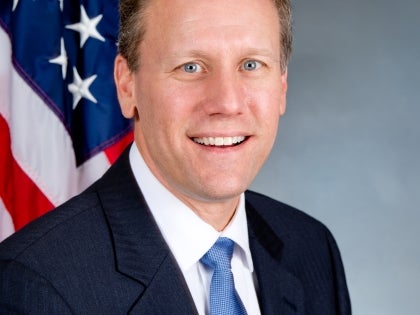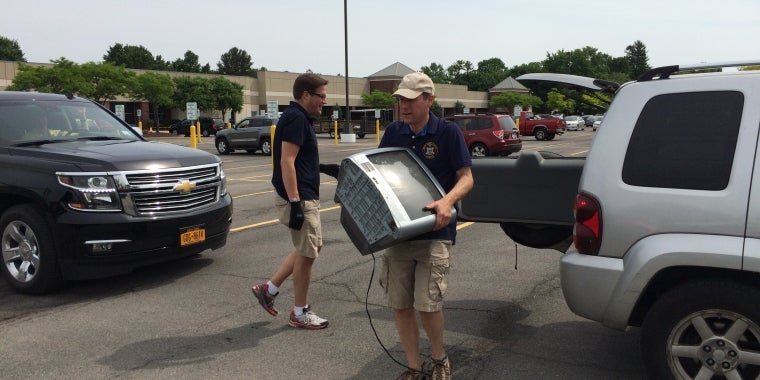
Valesky on IDC, Republican NY Senate coalition: 'Continuing to do what works'
By Teri Weaver on January 08, 2015 at 5:17 PM, updated January 08, 2015 at 5:18 PM
SYRACUSE, N.Y. - Without last year's power-sharing arrangement between the New York State Senate and breakaway Democrats, it's hard to imagine that allowing marijuana for medical use would now be state law, according to Sen. David Valesky.
"You can't say if there wasn't a coalition, it wouldn't have happened," Valesky, D-Oneida, said. "But I think you can say, absent the coalition as it existed last year, I feel comfortable saying that it is highly unlikely that that statute would be on the books now."
That's an example of the legislative success that Valesky says he and the four other members of the Independent Democratic Conference have had as they continue their coalition with Senate Republicans.
"It's continuing to do what works," Valesky said today.
It's a coalition defined in Senate rules, which give the IDC the power to temporarily delay votes on legislation. That's a power the mainstream Democrats don't have.
The partnership is also defined in other ways. Some IDC members are chairs of committees, positions that offer extra stipends and ability to move issues closer to the full Senate for consideration.
But this year will be different. Starting Wednesday, the Republicans officially took over the Senate after winning a clear majority in last fall's elections. Under new rules set Wednesday, Republican Leader Sen. Dean Skelos, R-Rockville Centre, became the sole majority leader and temporary president of the Senate.
That gives Skelos ultimate power to decide what bills come to the floor for a vote.
During the previous two years, there were two temporary presidents - Skelos and IDC Leader Sen. Jeff Klein, D-Bronx. Agreement from both was needed to bring bills up for a vote.
That change could be key on major issues where the Republicans and breakaway Democrats differ -- such as a higher minimum wage rate and taxpayer-backed college tuition benefits to some undocumented immigrants. Last year, Skelos and Klein agreed to a vote on the latter, the Dream Act. It failed, in part because two non-IDC Democrats voted against it.
Even when he ruled alone, Skelos has shown he's willing to bring forward controversial legislation he doesn't support if he faces enough political pressure. In 2011, Skelos -- who controlled the Senate then -- put forward Gov. Andrew Cuomo's proposal to legalize same-sex marriage even though only four Republicans ultimately voted for the bill.
Last year, IDC member Sen. Diane Savino, D-Staten Island, struck compromises with Cuomo and won enough support from Republicans to win the medical marijuana vote. The program is expected to begin operating in 2016.
Valesky said today despite the new rules, he expects the IDC and Republicans to continue to work closely together - much more so than many thought soon after last November's elections.
"While there are some differences in the rules, I think the result will be more of the same from what we have seen over the last couple of years," Valesky said today.


